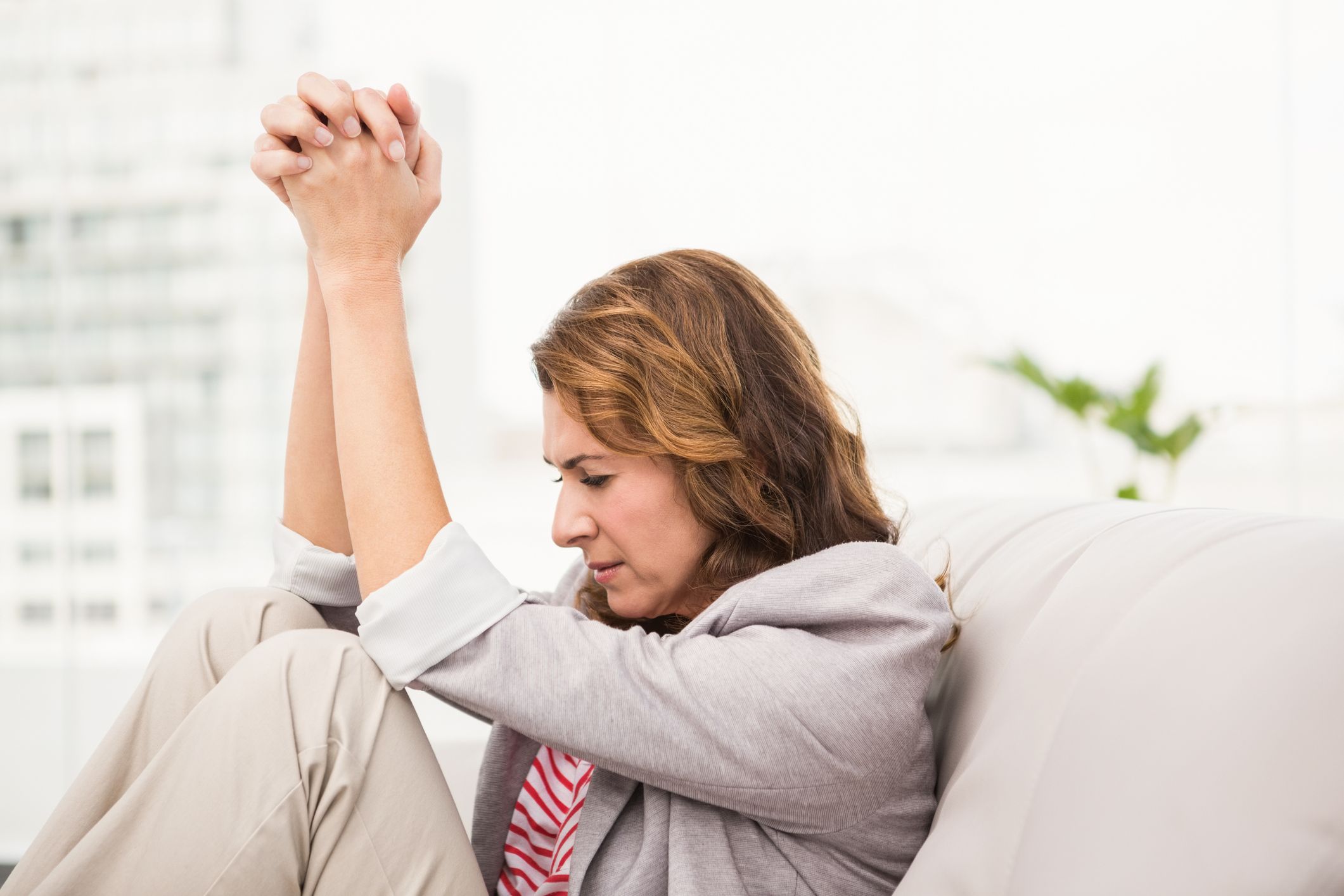Ask the next woman you meet on the street if she's ever felt anxious, and it's a good bet that you'll get a resounding "yes."
It's not just my own experience talking. A new HealthyWomen survey of 1,000 women, conducted in collaboration with Woman's Day magazine and released today, finds that a full 96 percent of us are all too familiar with anxiety.
CLICK HERE to read the full Woman's Day article.
Anxiety is a very real condition and, while not physical like heart disease or diabetes, it can increase our risk for other health problems, like irritable bowel syndrome, chronic pain, cardiovascular disease, asthma and depression.
Since women are twice as likely to be diagnosed with an anxiety disorder in their lifetime as men, I reached out to expert Mary Gilberti, CEO of the National Alliance on Mental Illness (NAMI), the largest grassroots mental health organization in the United States, to dig a little deeper on what we need to know about anxiety's impact on our health.
BB: What are some common signs of anxiety women should watch out for?
MG: Common signs of anxiety can include a feeling of unease or a panicky internal experience. Some people breathe harder, which can result in sweaty or tingly hands. Dry mouth, nausea or gastrointestinal distress are also seen in some anxiety conditions. Heart palpitations, which are less common, can be mistaken for a heart issue.
BB: Everyone deals with anxiety in their own way, but our survey finds that our most common coping methods include watching TV, eating and avoiding social situations. Can you suggest strategies that might be a bit more productive and healthier?
MG: Watching TV and eating take your mind off of your anxiety, so they're quite understandable. I encourage people to incorporate exercise into their routine. Meditation, yoga and other activities that encourage mindfulness can also be helpful. For women who do not experience relief through coping skills and exercise, the use of psychotherapy and medications, when appropriate, can greatly reduce symptoms.
BB: What type of counseling can help treat anxiety?
MG: Cognitive behavior therapy, or CBT, is a great treatment for virtually all anxiety disorders. CBT helps people take a critical look at their negative thought patterns that can create a vicious cycle and fuel anxiety. CBT teaches strategies and coping skills to face anxiety and help alleviate the symptoms.
If you see a therapist, ask them if they are trained in CBT. If they're not, you can still assess their fit for you. A trusted relationship with a therapist may be helpful for some anxiety conditions.
BB: Our survey finds that many women do not seek help for their anxiety, either because they're embarrassed, they think it's just a part of growing older or they just don't know the right questions to ask their health care professional. What are some tips to make it easier to start the conversation?
MG: First, remember that the brain is part of the body and, as former Congressman Patrick Kennedy says, we all need a "checkup from the neck up."
Second, recognize that the medical field has slowly woken up to the fact that much of primary care involves these human issues, and they need to be prepared for [such questions]. You can ask for an assessment from a licensed mental health clinician by either asking your doctor for recommendations or seeking help from your insurer or your employer's employee assistance program if they have one. If you aren't comfortable starting your treatment with medication, share that with your health care professional.
Third, if you are on medications for other health conditions, be sure to ask if side effects of these medications could be the cause of your anxiety. Many medicines can cause symptoms of anxiety and depression. Your primary care physician should be able to help identify if that is the cause of your symptoms and adjust your medication as needed.
BB: Many women surveyed say they feel more anxiety than they did when they younger. Do you find this surprising?
MG: Anxiety is a common human experience, and I encourage people to be gentle with themselves. While we have more experience in our 40s and 50s, we also face new stresses in terms of family, children, work, financial anxiety and even workplace discrimination and harassment. Medical concerns can also generate anxiety, and these are more common as we age. Still, our experience makes us resilient, and it's important to remember that at all times.
This interview has been edited and condensed.
Need more information about anxiety treatments and support? Visit the NAMI website today.


